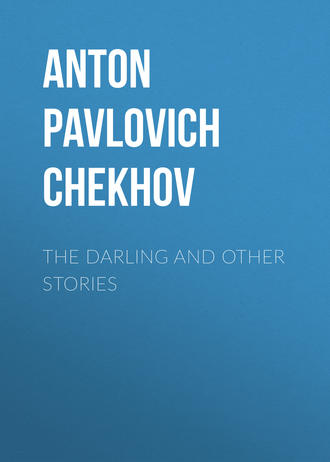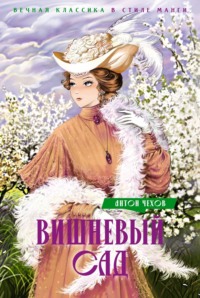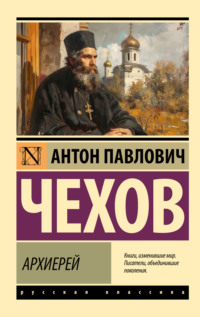 полная версия
полная версияThe Darling and Other Stories
I turned cold all over; my hands and feet went numb and I felt an ache in my chest, as if a three-cornered stone had been driven into it. Kotlovitch sank helplessly into an easy-chair, and his hands fell limply at his sides.
"What can I do?" I inquired.
"Persuade her… Impress her mind… Just consider, what is Lubkov to her? Is he a match for her? Oh, good God! How awful it is, how awful it is!" he went on, clutching his head. "She has had such splendid offers-Prince Maktuev and.. and others. The prince adores her, and only last Wednesday week his late grandfather, Ilarion, declared positively that Ariadne would be his wife-positively! His grandfather Ilarion is dead, but he is a wonderfully intelligent person; we call up his spirit every day."
After this conversation I lay awake all night and thought of shooting myself. In the morning I wrote five letters and tore them all up. Then I sobbed in the barn. Then I took a sum of money from my father and set off for the Caucasus without saying good-bye.
Of course, a woman's a woman and a man's a man, but can all that be as simple in our day as it was before the Flood, and can it be that I, a cultivated man endowed with a complex spiritual organisation, ought to explain the intense attraction I feel towards a woman simply by the fact that her bodily formation is different from mine? Oh, how awful that would be! I want to believe that in his struggle with nature the genius of man has struggled with physical love too, as with an enemy, and that, if he has not conquered it, he has at least succeeded in tangling it in a net-work of illusions of brotherhood and love; and for me, at any rate, it is no longer a simple instinct of my animal nature as with a dog or a toad, but is real love, and every embrace is spiritualised by a pure impulse of the heart and respect for the woman. In reality, a disgust for the animal instinct has been trained for ages in hundreds of generations; it is inherited by me in my blood and forms part of my nature, and if I poetize love, is not that as natural and inevitable in our day as my ears' not being able to move and my not being covered with fur? I fancy that's how the majority of civilised people look at it, so that the absence of the moral, poetical element in love is treated in these days as a phenomenon, as a sign of atavism; they say it is a symptom of degeneracy, of many forms of insanity. It is true that, in poetizing love, we assume in those we love qualities that are lacking in them, and that is a source of continual mistakes and continual miseries for us. But to my thinking it is better, even so; that is, it is better to suffer than to find complacency on the basis of woman being woman and man being man.
In Tiflis I received a letter from my father. He wrote that Ariadne Grigoryevna had on such a day gone abroad, intending to spend the whole winter away. A month later I returned home. It was by now autumn. Every week Ariadne sent my father extremely interesting letters on scented paper, written in an excellent literary style. It is my opinion that every woman can be a writer. Ariadne described in great detail how it had not been easy for her to make it up with her aunt and induce the latter to give her a thousand roubles for the journey, and what a long time she had spent in Moscow trying to find an old lady, a distant relation, in order to persuade her to go with her. Such a profusion of detail suggested fiction, and I realised, of course, that she had no chaperon with her.
Soon afterwards I, too, had a letter from her, also scented and literary. She wrote that she had missed me, missed my beautiful, intelligent, loving eyes. She reproached me affectionately for wasting my youth, for stagnating in the country when I might, like her, be living in paradise under the palms, breathing the fragrance of the orange-trees. And she signed herself "Your forsaken Ariadne." Two days later came another letter in the same style, signed "Your forgotten Ariadne." My mind was confused. I loved her passionately, I dreamed of her every night, and then this "your forsaken," "your forgotten" – what did it mean? What was it for? And then the dreariness of the country, the long evenings, the disquieting thoughts of Lubkov… The uncertainty tortured me, and poisoned my days and nights; it became unendurable. I could not bear it and went abroad.
Ariadne summoned me to Abbazzia. I arrived there on a bright warm day after rain; the rain-drops were still hanging on the trees and glistening on the huge, barrack-like dépendance where Ariadne and Lubkov were living.
They were not at home. I went into the park; wandered about the avenues, then sat down. An Austrian General, with his hands behind him, walked past me, with red stripes on his trousers such as our generals wear. A baby was wheeled by in a perambulator and the wheels squeaked on the damp sand. A decrepit old man with jaundice passed, then a crowd of Englishwomen, a Catholic priest, then the Austrian General again. A military band, only just arrived from Fiume, with glittering brass instruments, sauntered by to the bandstand-they began playing.
Have you ever been at Abbazzia? It's a filthy little Slav town with only one street, which stinks, and in which one can't walk after rain without goloshes. I had read so much and always with such intense feeling about this earthly paradise that when afterwards, holding up my trousers, I cautiously crossed the narrow street, and in my ennui bought some hard pears from an old peasant woman who, recognising me as a Russian, said: "Tcheeteery" for "tchetyry" (four) – "davadtsat" for "dvadtsat" (twenty), and when I wondered in perplexity where to go and what to do here, and when I inevitably met Russians as disappointed as I was, I began to feel vexed and ashamed. There is a calm bay there full of steamers and boats with coloured sails. From there I could see Fiume and the distant islands covered with lilac mist, and it would have been picturesque if the view over the bay had not been hemmed in by the hotels and their dépendances-buildings in an absurd, trivial style of architecture, with which the whole of that green shore has been covered by greedy money grubbers, so that for the most part you see nothing in this little paradise but windows, terraces, and little squares with tables and waiters' black coats. There is a park such as you find now in every watering-place abroad. And the dark, motionless, silent foliage of the palms, and the bright yellow sand in the avenue, and the bright green seats, and the glitter of the braying military horns-all this sickened me in ten minutes! And yet one is obliged for some reason to spend ten days, ten weeks, there!
Having been dragged reluctantly from one of these watering-places to another, I have been more and more struck by the inconvenient and niggardly life led by the wealthy and well-fed, the dulness and feebleness of their imagination, the lack of boldness in their tastes and desires. And how much happier are those tourists, old and young, who, not having the money to stay in hotels, live where they can, admire the view of the sea from the tops of the mountains, lying on the green grass, walk instead of riding, see the forests and villages at close quarters, observe the customs of the country, listen to its songs, fall in love with its women..
While I was sitting in the park, it began to get dark, and in the twilight my Ariadne appeared, elegant and dressed like a princess; after her walked Lubkov, wearing a new loose-fitting suit, bought probably in Vienna.
"Why are you cross with me?" he was saying. "What have I done to you?"
Seeing me, she uttered a cry of joy, and probably, if we had not been in the park, would have thrown herself on my neck. She pressed my hands warmly and laughed; and I laughed too and almost cried with emotion. Questions followed, of the village, of my father, whether I had seen her brother, and so on. She insisted on my looking her straight in the face, and asked if I remembered the gudgeon, our little quarrels, the picnics..
"How nice it all was really!" she sighed. "But we're not having a slow time here either. We have a great many acquaintances, my dear, my best of friends! To-morrow I will introduce you to a Russian family here, but please buy yourself another hat." She scrutinised me and frowned. "Abbazzia is not the country," she said; "here one must be _comme il faut_."
Then we went to the restaurant. Ariadne was laughing and mischievous all the time; she kept calling me "dear," "good," "clever," and seemed as though she could not believe her eyes that I was with her. We sat on till eleven o'clock, and parted very well satisfied both with the supper and with each other.
Next day Ariadne presented me to the Russian family as: "The son of a distinguished professor whose estate is next to ours."
She talked to this family about nothing but estates and crops, and kept appealing to me. She wanted to appear to be a very wealthy landowner, and did, in fact, succeed in doing so. Her manner was superb like that of a real aristocrat, which indeed she was by birth.
"But what a person my aunt is!" she said suddenly, looking at me with a smile. "We had a slight tiff, and she has bolted off to Meran. What do you say to that?"
Afterwards when we were walking in the park I asked her:
"What aunt were you talking of just now? What aunt is that?"
"That was a saving lie," laughed Ariadne. "They must not know I'm without a chaperon."
After a moment's silence she came closer to me and said:
"My dear, my dear, do be friends with Lubkov. He is so unhappy! His wife and mother are simply awful."
She used the formal mode of address in speaking to Lubkov, and when she was going up to bed she said good-night to him exactly as she did to me, and their rooms were on different floors. All this made me hope that it was all nonsense, and that there was no sort of love affair between them, and I felt at ease when I met him. And when one day he asked me for the loan of three hundred roubles, I gave it to him with the greatest pleasure.
Every day we spent in enjoying ourselves and in nothing but enjoying ourselves; we strolled in the park, we ate, we drank. Every day there were conversations with the Russian family. By degrees I got used to the fact that if I went into the park I should be sure to meet the old man with jaundice, the Catholic priest, and the Austrian General, who always carried a pack of little cards, and wherever it was possible sat down and played patience, nervously twitching his shoulders. And the band played the same thing over and over again.
At home in the country I used to feel ashamed to meet the peasants when I was fishing or on a picnic party on a working day; here too I was ashamed at the sight of the footmen, the coachmen, and the workmen who met us. It always seemed to me they were looking at me and thinking: "Why are you doing nothing?" And I was conscious of this feeling of shame every day from morning to night. It was a strange, unpleasant, monotonous time; it was only varied by Lubkov's borrowing from me now a hundred, now fifty guldens, and being suddenly revived by the money as a morphia-maniac is by morphia, beginning to laugh loudly at his wife, at himself, at his creditors.
At last it began to be rainy and cold. We went to Italy, and I telegraphed to my father begging him for mercy's sake to send me eight hundred roubles to Rome. We stayed in Venice, in Bologna, in Florence, and in every town invariably put up at an expensive hotel, where we were charged separately for lights, and for service, and for heating, and for bread at lunch, and for the right of having dinner by ourselves. We ate enormously. In the morning they gave us _café complet_; at one o'clock lunch: meat, fish, some sort of omelette, cheese, fruits, and wine. At six o'clock dinner of eight courses with long intervals, during which we drank beer and wine. At nine o'clock tea. At midnight Ariadne would declare she was hungry, and ask for ham and boiled eggs. We would eat to keep her company.
In the intervals between meals we used to rush about the museums and exhibitions in continual anxiety for fear we should be late for dinner or lunch. I was bored at the sight of the pictures; I longed to be at home to rest; I was exhausted, looked about for a chair and hypocritically repeated after other people: "How exquisite, what atmosphere!" Like overfed boa constrictors, we noticed only the most glaring objects. The shop windows hypnotised us; we went into ecstasies over imitation brooches and bought a mass of useless trumpery.
The same thing happened in Rome, where it rained and there was a cold wind. After a heavy lunch we went to look at St. Peter's, and thanks to our replete condition and perhaps the bad weather, it made no sort of impression on us, and detecting in each other an indifference to art, we almost quarrelled.
The money came from my father. I went to get it, I remember, in the morning. Lubkov went with me.
"The present cannot be full and happy when one has a past," said he. "I have heavy burdens left on me by the past. However, if only I get the money, it's no great matter, but if not, I'm in a fix. Would you believe it, I have only eight francs left, yet I must send my wife a hundred and my mother another. And we must live here too. Ariadne's like a child; she won't enter into the position, and flings away money like a duchess. Why did she buy a watch yesterday? And, tell me, what object is there in our going on playing at being good children? Why, our hiding our relations from the servants and our friends costs us from ten to fifteen francs a day, as I have to have a separate room. What's the object of it?"
I felt as though a sharp stone had been turned round in my chest. There was no uncertainty now; it was all clear to me. I turned cold all over, and at once made a resolution to give up seeing them, to run away from them, to go home at once..
"To get on terms with a woman is easy enough," Lubkov went on. "You have only to undress her; but afterwards what a bore it is, what a silly business!"
When I counted over the money I received he said:
"If you don't lend me a thousand francs, I am faced with complete ruin. Your money is the only resource left to me."
I gave him the money, and he at once revived and began laughing about his uncle, a queer fish, who could never keep his address secret from his wife. When I reached the hotel I packed and paid my bill. I had still to say good-bye to Ariadne.
I knocked at the door.
"Entrez!"
In her room was the usual morning disorder: tea-things on the table, an unfinished roll, an eggshell; a strong overpowering reek of scent. The bed had not been made, and it was evident that two had slept in it.
Ariadne herself had only just got out of bed and was now with her hair down in a flannel dressing-jacket.
I said good-morning to her, and then sat in silence for a minute while she tried to put her hair tidy, and then I asked her, trembling all over:
"Why.. why.. did you send for me here?"
Evidently she guessed what I was thinking; she took me by the hand and said:
"I want you to be here, you are so pure."
I felt ashamed of my emotion, of my trembling. And I was afraid I might begin sobbing, too! I went out without saying another word, and within an hour I was sitting in the train. All the journey, for some reason, I imagined Ariadne with child, and she seemed disgusting to me, and all the women I saw in the trains and at the stations looked to me, for some reason, as if they too were with child, and they too seemed disgusting and pitiable. I was in the position of a greedy, passionate miser who should suddenly discover that all his gold coins were false. The pure, gracious images which my imagination, warmed by love, had cherished for so long, my plans, my hopes, my memories, my ideas of love and of woman-all now were jeering and putting out their tongues at me. "Ariadne," I kept asking with horror, "that young, intellectual, extraordinarily beautiful girl, the daughter of a senator, carrying on an intrigue with such an ordinary, uninteresting vulgarian? But why should she not love Lubkov?" I answered myself. "In what is he inferior to me? Oh, let her love any one she likes, but why lie to me? But why is she bound to be open with me?" And so I went on over and over again till I was stupefied.
It was cold in the train; I was travelling first class, but even so there were three on a side, there were no double windows, the outer door opened straight into the compartment, and I felt as though I were in the stocks, cramped, abandoned, pitiful, and my legs were fearfully numb, and at the same time I kept recalling how fascinating she had been that morning in her dressing-jacket and with her hair down, and I was suddenly overcome by such acute jealousy that I leapt up in anguish, so that my neighbours stared at me in wonder and positive alarm.
At home I found deep snow and twenty degrees of frost. I'm fond of the winter; I'm fond of it because at that time, even in the hardest frosts, it's particularly snug at home. It's pleasant to put on one's fur jacket and felt overboots on a clear frosty day, to do something in the garden or in the yard, or to read in a well warmed room, to sit in my father's study before the open fire, to wash in my country bath-house… Only if there is no mother in the house, no sister and no children, it is somehow dreary on winter evenings, and they seem extraordinarily long and quiet. And the warmer and snugger it is, the more acutely is this lack felt. In the winter when I came back from abroad, the evenings were endlessly long, I was intensely depressed, so depressed that I could not even read; in the daytime I was coming and going, clearing away the snow in the garden or feeding the chickens and the calves, but in the evening it was all up with me.
I had never cared for visitors before, but now I was glad of them, for I knew there was sure to be talk of Ariadne. Kotlovitch, the spiritualist, used often to come to talk about his sister, and sometimes he brought with him his friend Prince Maktuev, who was as much in love with Ariadne as I was. To sit in Ariadne's room, to finger the keys of her piano, to look at her music was a necessity for the prince-he could not live without it; and the spirit of his grandfather Ilarion was still predicting that sooner or later she would be his wife. The prince usually stayed a long time with us, from lunch to midnight, saying nothing all the time; in silence he would drink two or three bottles of beer, and from time to time, to show that he too was taking part in the conversation, he would laugh an abrupt, melancholy, foolish laugh. Before going home he would always take me aside and ask me in an undertone: "When did you see Ariadne Grigoryevna last? Was she quite well? I suppose she's not tired of being out there?"
Spring came on. There was the harrowing to do and then the sowing of spring corn and clover. I was sad, but there was the feeling of spring. One longed to accept the inevitable. Working in the fields and listening to the larks, I asked myself: "Couldn't I have done with this question of personal happiness once and for all? Couldn't I lay aside my fancy and marry a simple peasant girl?"
Suddenly when we were at our very busiest, I got a letter with the Italian stamp, and the clover and the beehives and the calves and the peasant girl all floated away like smoke. This time Ariadne wrote that she was profoundly, infinitely unhappy. She reproached me for not holding out a helping hand to her, for looking down upon her from the heights of my virtue and deserting her at the moment of danger. All this was written in a large, nervous handwriting with blots and smudges, and it was evident that she wrote in haste and distress. In conclusion she besought me to come and save her. Again my anchor was hauled up and I was carried away. Ariadne was in Rome. I arrived late in the evening, and when she saw me, she sobbed and threw herself on my neck. She had not changed at all that winter, and was just as young and charming. We had supper together and afterwards drove about Rome until dawn, and all the time she kept telling me about her doings. I asked where Lubkov was.
"Don't remind me of that creature!" she cried. "He is loathsome and disgusting to me!"
"But I thought you loved him," I said.
"Never," she said. "At first he struck me as original and aroused my pity, that was all. He is insolent and takes a woman by storm. And that's attractive. But we won't talk about him. That is a melancholy page in my life. He has gone to Russia to get money. Serve him right! I told him not to dare to come back."
She was living then, not at an hotel, but in a private lodging of two rooms which she had decorated in her own taste, frigidly and luxuriously.
After Lubkov had gone away she had borrowed from her acquaintances about five thousand francs, and my arrival certainly was the one salvation for her.
I had reckoned on taking her back to the country, but I did not succeed in that. She was homesick for her native place, but her recollections of the poverty she had been through there, of privations, of the rusty roof on her brother's house, roused a shudder of disgust, and when I suggested going home to her, she squeezed my hands convulsively and said:
"No, no, I shall die of boredom there!"
Then my love entered upon its final phase.
"Be the darling that you used to be; love me a little," said Ariadne, bending over to me. "You're sulky and prudent, you're afraid to yield to impulse, and keep thinking of consequences, and that's dull. Come, I beg you, I beseech you, be nice to me!.. My pure one, my holy one, my dear one, I love you so!"
I became her lover. For a month anyway I was like a madman, conscious of nothing but rapture. To hold in one's arms a young and lovely body, with bliss to feel her warmth every time one waked up from sleep, and to remember that she was there-she, my Ariadne! – oh, it was not easy to get used to that! But yet I did get used to it, and by degrees became capable of reflecting on my new position. First of all, I realised, as before, that Ariadne did not love me. But she wanted to be really in love, she was afraid of solitude, and, above all, I was healthy, young, vigorous; she was sensual, like all cold people, as a rule-and we both made a show of being united by a passionate, mutual love. Afterwards I realised something else, too.
We stayed in Rome, in Naples, in Florence; we went to Paris, but there we thought it cold and went back to Italy. We introduced ourselves everywhere as husband and wife, wealthy landowners. People readily made our acquaintance and Ariadne had great social success everywhere. As she took lessons in painting, she was called an artist, and only imagine, that quite suited her, though she had not the slightest trace of talent.
She would sleep every day till two or three o'clock; she had her coffee and lunch in bed. At dinner she would eat soup, lobster, fish, meat, asparagus, game, and after she had gone to bed I used to bring up something, for instance roast beef, and she would eat it with a melancholy, careworn expression, and if she waked in the night she would eat apples and oranges.
The chief, so to say fundamental, characteristic of the woman was an amazing duplicity. She was continually deceitful every minute, apparently apart from any necessity, as it were by instinct, by an impulse such as makes the sparrow chirrup and the cockroach waggle its antennæ. She was deceitful with me, with the footman, with the porter, with the tradesmen in the shops, with her acquaintances; not one conversation, not one meeting, took place without affectation and pretence. A man had only to come into our room-whoever it might be, a waiter, or a baron-for her eyes, her expression, her voice to change, even the contour of her figure was transformed. At the very first glance at her then, you would have said there were no more wealthy and fashionable people in Italy than we. She never met an artist or a musician without telling him all sorts of lies about his remarkable talent.
"You have such a talent!" she would say, in honeyed cadences, "I'm really afraid of you. I think you must see right through people."
And all this simply in order to please, to be successful, to be fascinating! She waked up every morning with the one thought of "pleasing"! It was the aim and object of her life. If I had told her that in such a house, in such a street, there lived a man who was not attracted by her, it would have caused her real suffering. She wanted every day to enchant, to captivate, to drive men crazy. The fact that I was in her power and reduced to a complete nonentity before her charms gave her the same sort of satisfaction that visitors used to feel in tournaments. My subjection was not enough, and at nights, stretched out like a tigress, uncovered-she was always too hot-she would read the letters sent her by Lubkov; he besought her to return to Russia, vowing if she did not he would rob or murder some one to get the money to come to her. She hated him, but his passionate, slavish letters excited her. She had an extraordinary opinion of her own charms; she imagined that if somewhere, in some great assembly, men could have seen how beautifully she was made and the colour of her skin, she would have vanquished all Italy, the whole world. Her talk of her figure, of her skin, offended me, and observing this, she would, when she was angry, to vex me, say all sorts of vulgar things, taunting me. One day when we were at the summer villa of a lady of our acquaintance, and she lost her temper, she even went so far as to say: "If you don't leave off boring me with your sermons, I'll undress this minute and lie naked here on these flowers."









